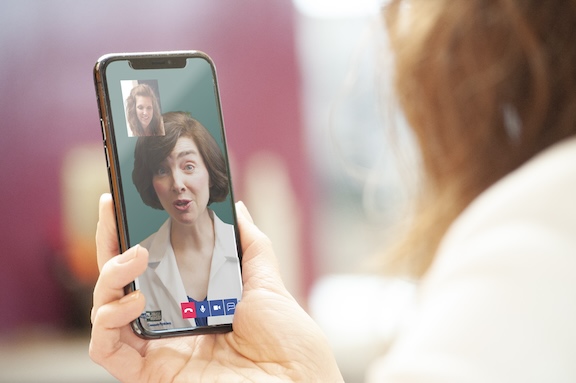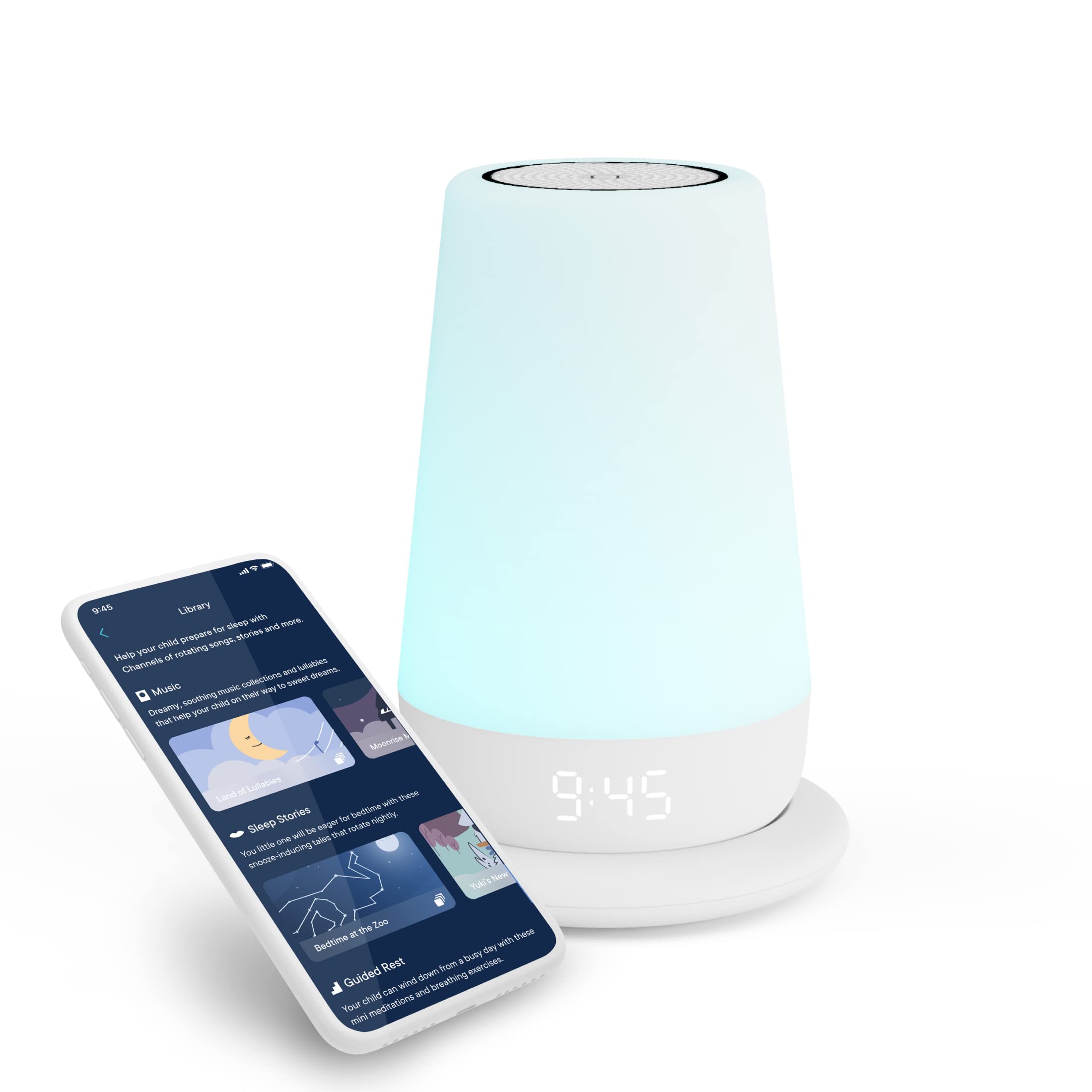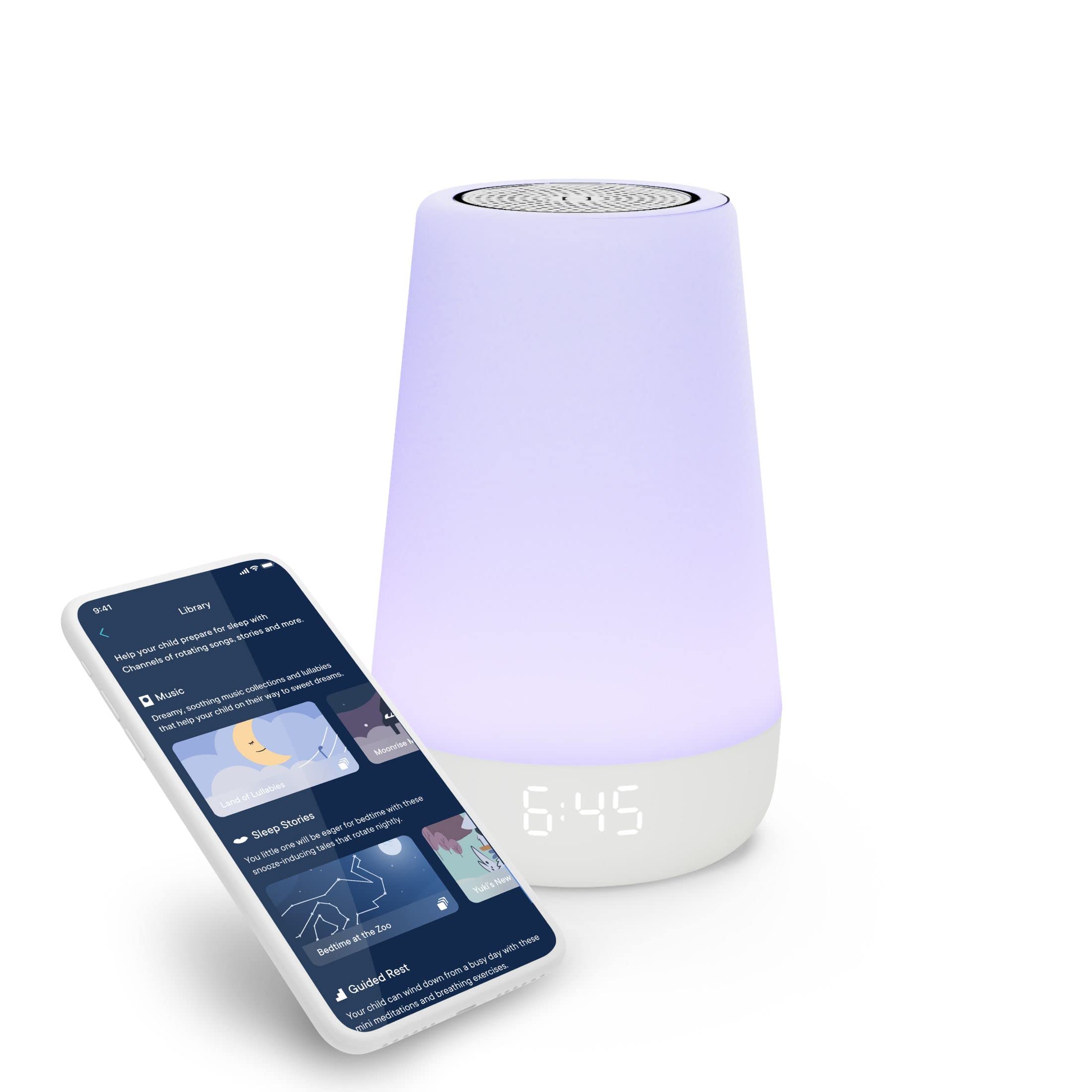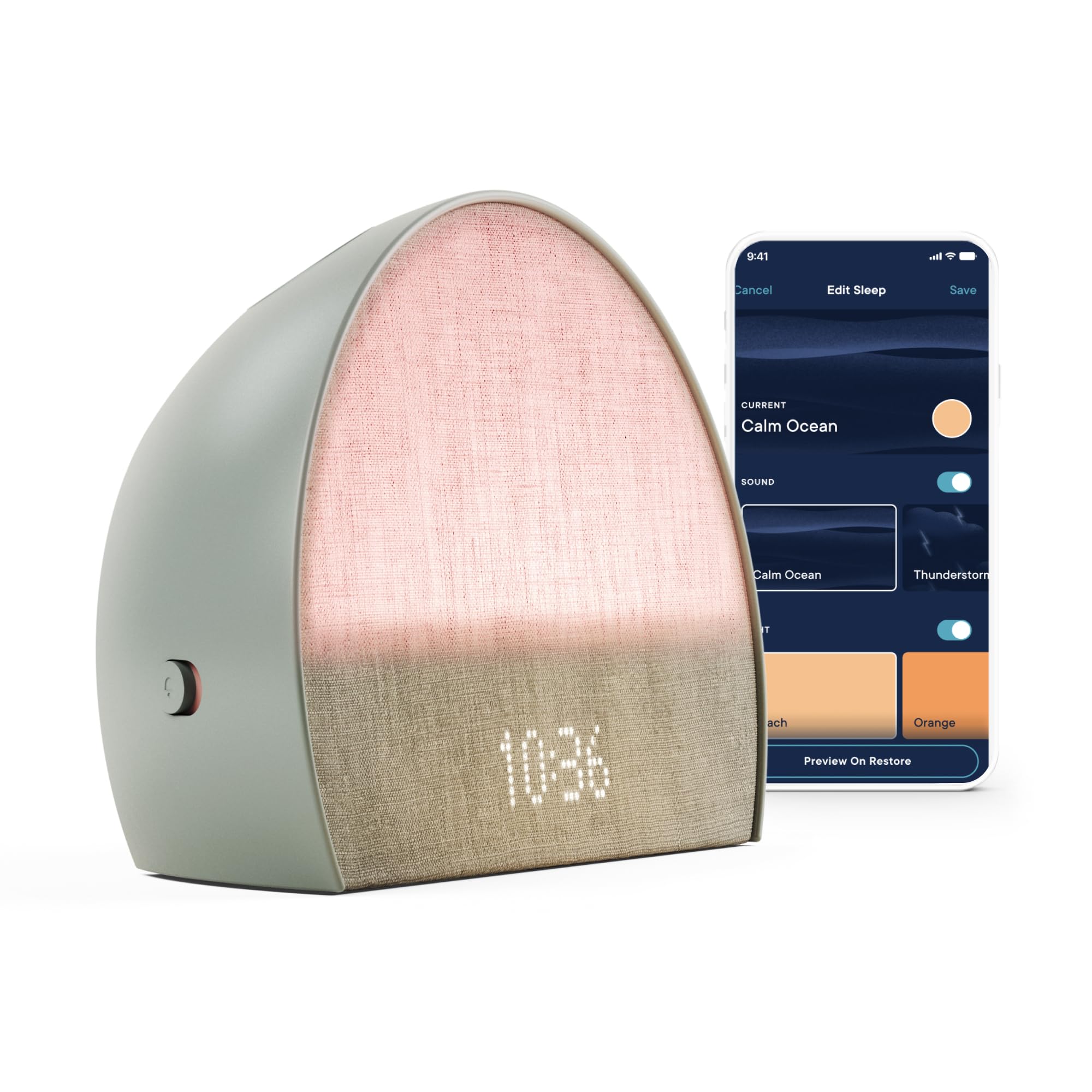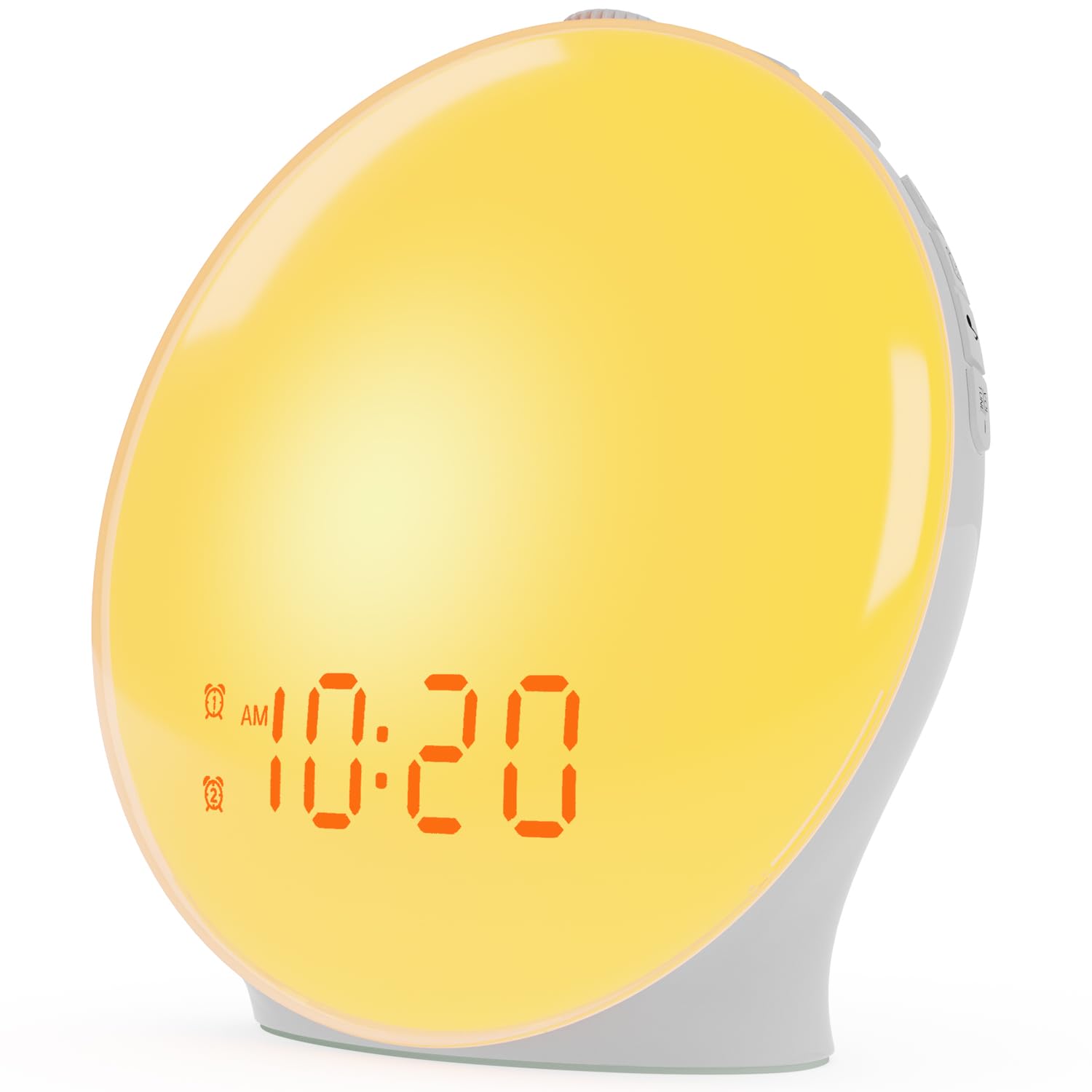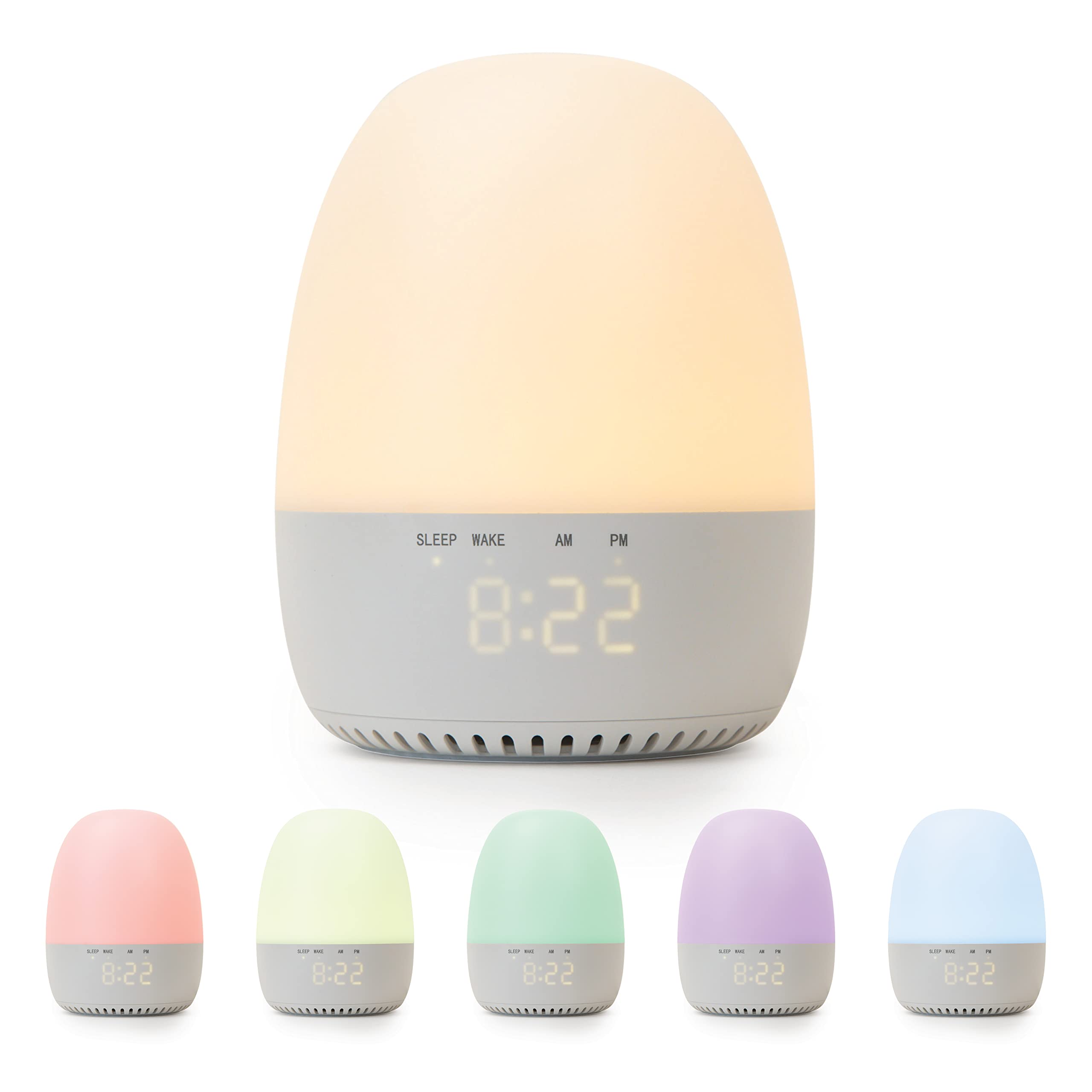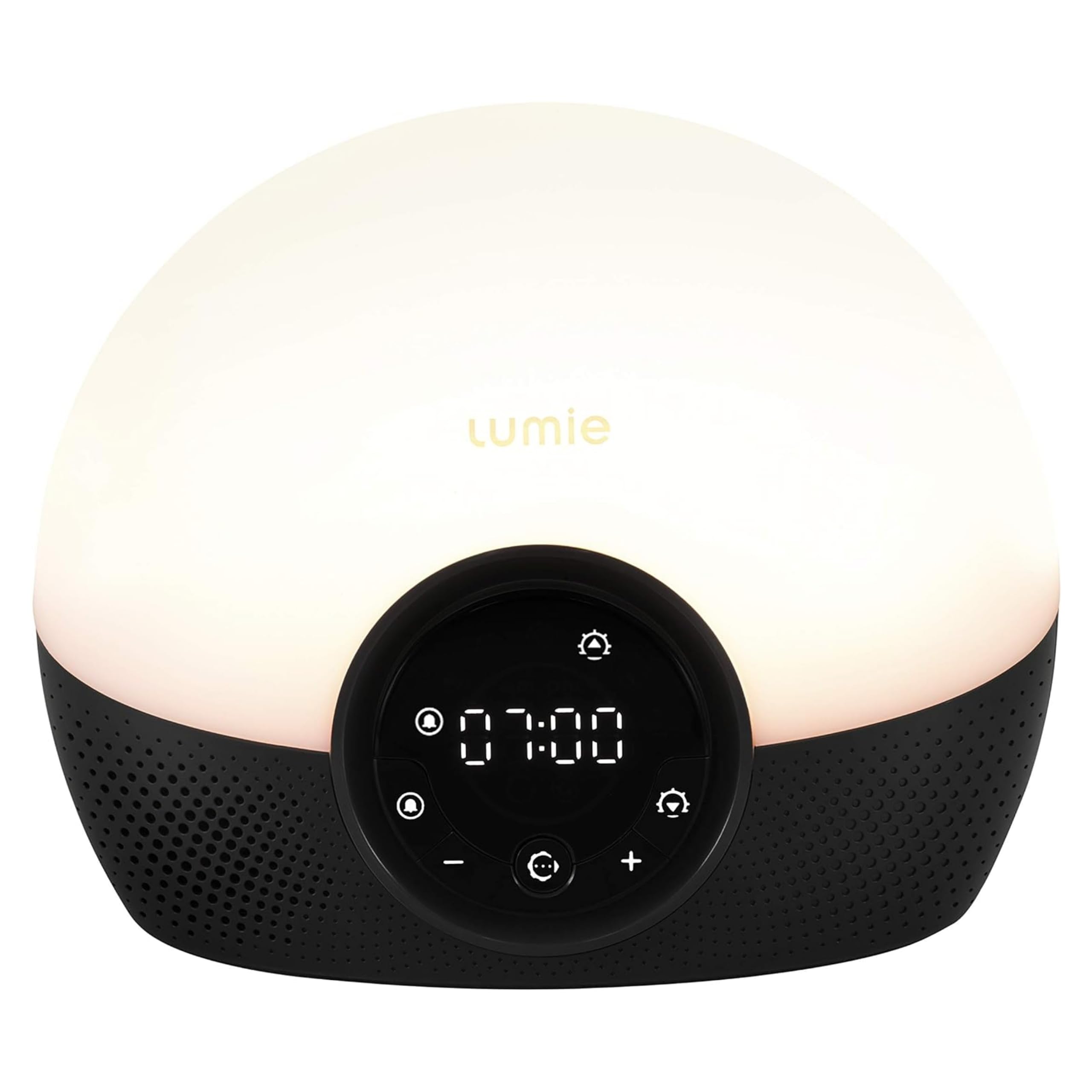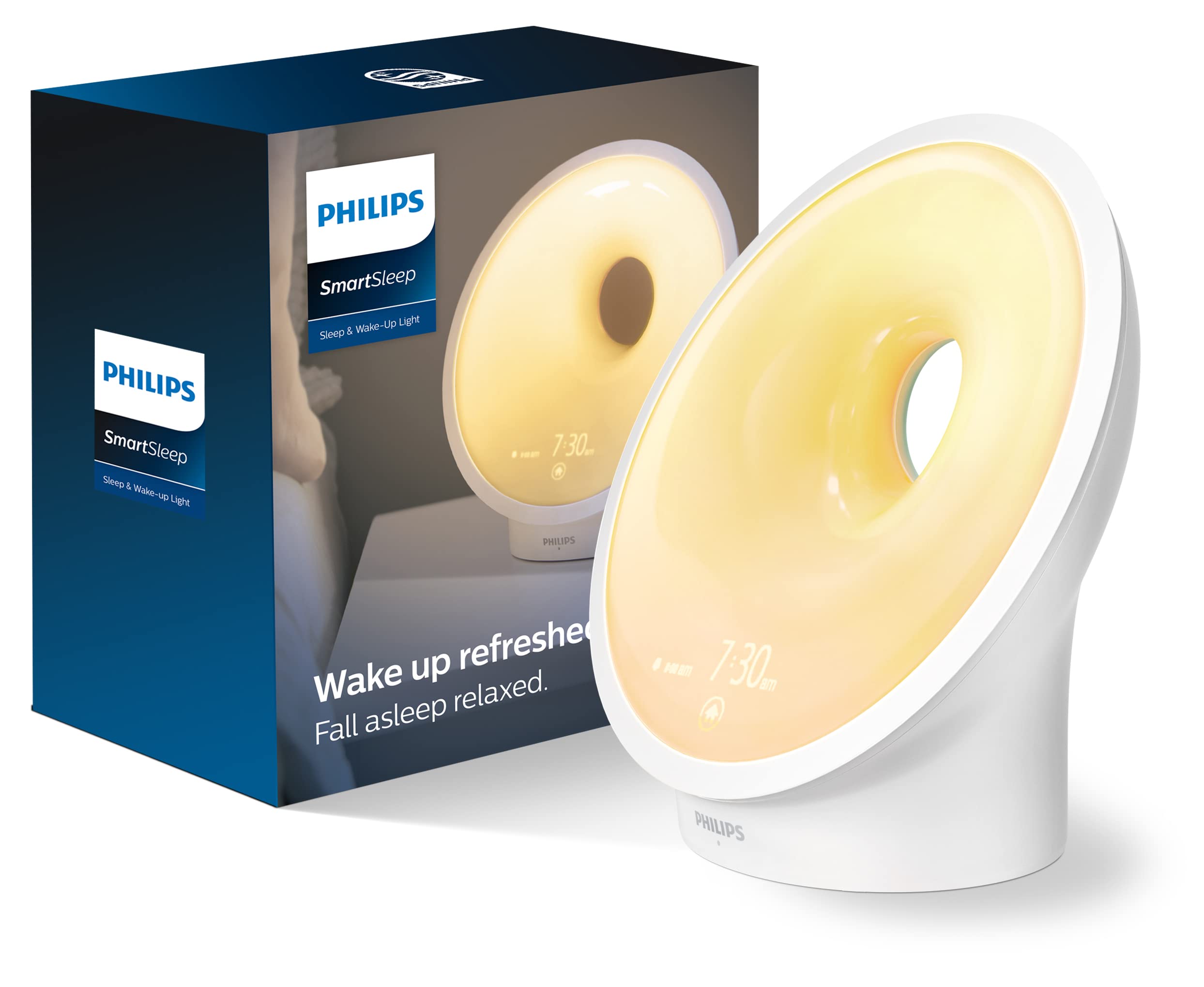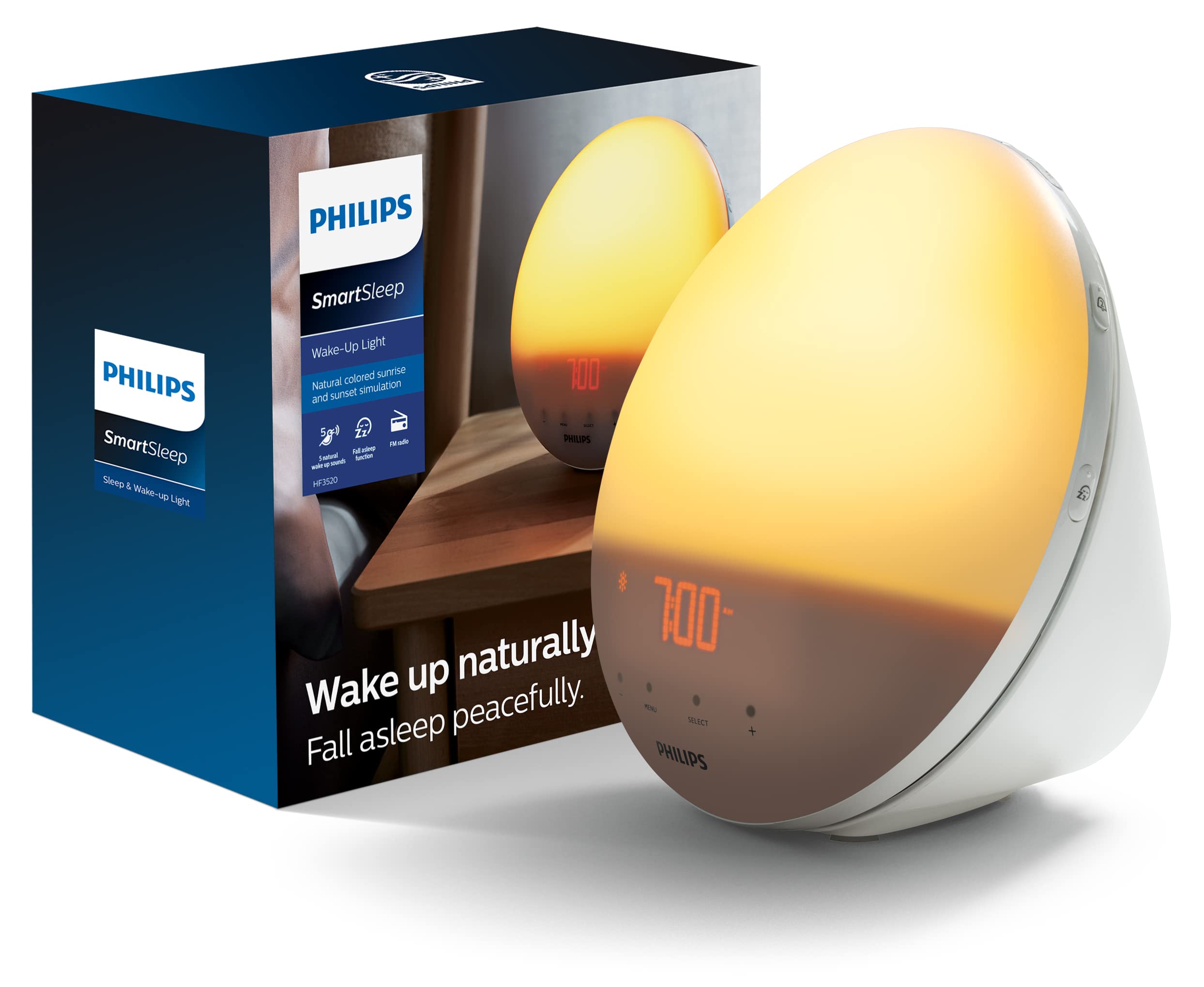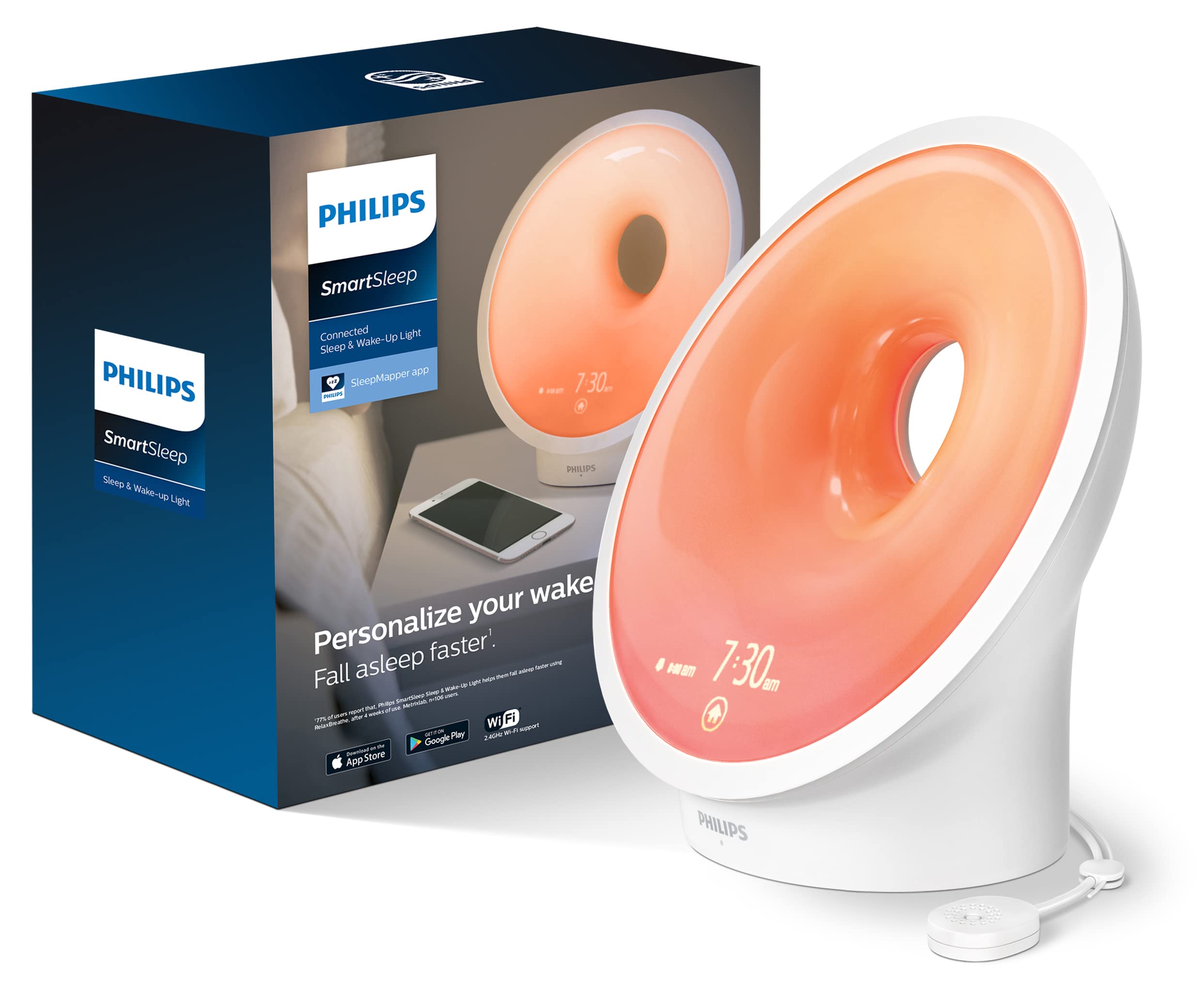Sunrise Alarm Clocks

Awakening to sunlight can help improve your alertness, mood, and physical and mental health. However, during winter or cloudy months, sunlight is less prevalent.
Sunrise alarm clocks mimic normal sunlight to help your body awake in a more natural, healthy state during these darker months of the year.
See how your sleep quality stacks up.
Start here to get a baseline on how well you sleep and where you can improve.
Sunlight and Sleep
Your body’s sleeping and waking pattern over a 24-hour period is its circadian rhythm. Throughout the day, your body receives signals that dictate this rhythm. A key signal is sunlight, which dictates your body’s sense of time.
How Sunrise Alarm Clocks Work
Sunrise alarm clocks, also called dawn simulators, impact your circadian rhythm by tapping into your body’s sensitivity to light. They combine an alarm clock with a light that simulates sunlight. This light makes your body think it is dawn, helping you wake up.
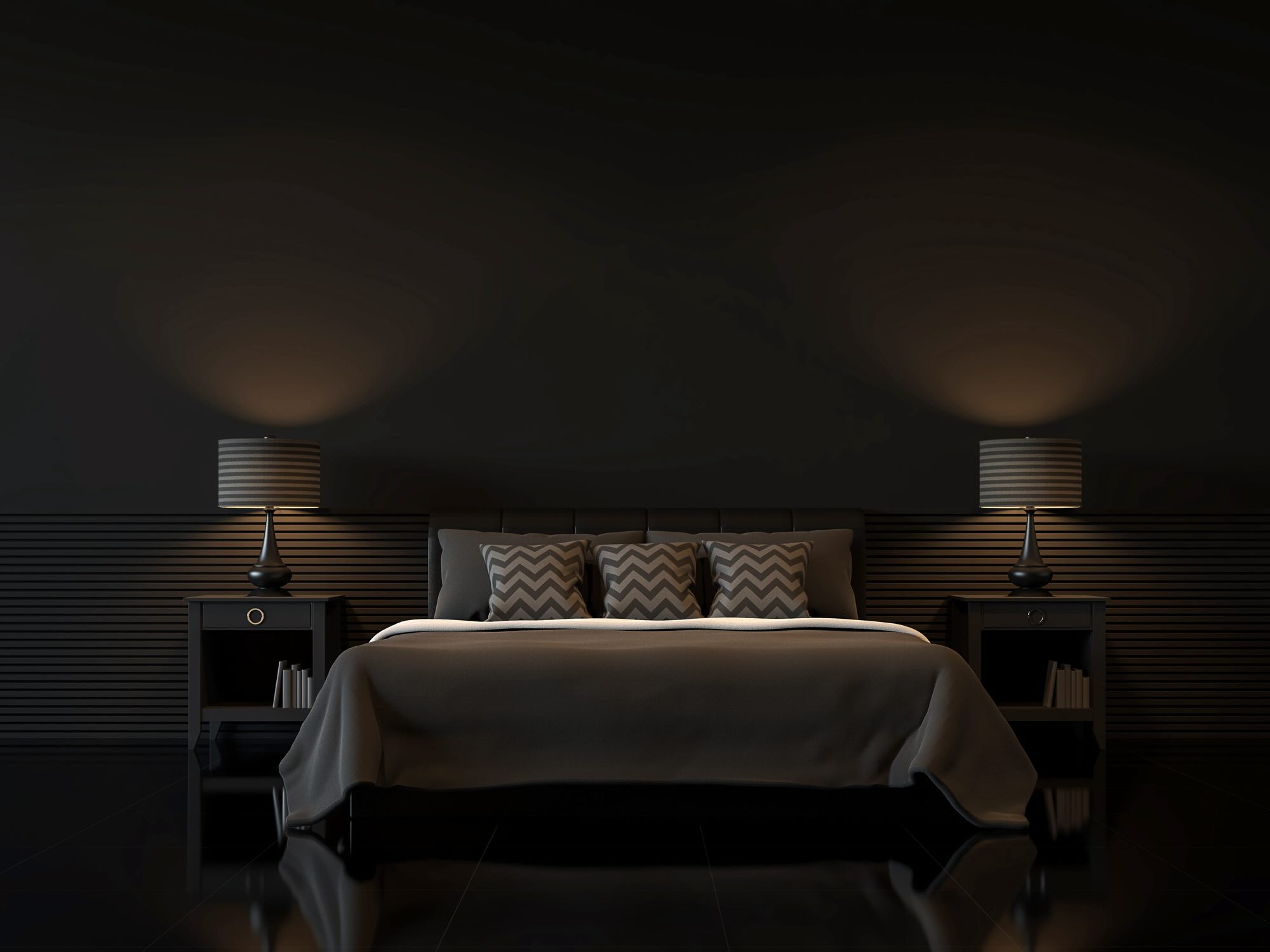
Optimize Your Room for Sleep Hygiene
Sleep hygiene refers to your sleep routine and the physical state of your bedroom. Discover the simple steps you can take to improve your bedroom environment and boost both the quality and quantity of your sleep.
Learn MoreHow to Choose a Sunrise Alarm Clock
- Wake-Up Experience: If you prefer a natural wake-up process, opt for a dawn simulator. For those interested in sleep cycle analysis and optimization, a smart alarm would be more suitable.
- Light Sensitivity: Select a model with adjustable light intensity and color temperature to suit your personal comfort and preference.
- Sound Preferences: Look for devices with sound features that appeal to you, such as the ability to play personalized music.
- Travel-Friendly Options: Choose compact options or smart alarm apps with travel-specific features.
- Smart Features: If desired, explore advanced features like sleep cycle reports, app integration, and customizable settings.
Different Types of Sunrise Alarm Clocks
- Dawn Simulators: Replicate the sunrise with increasing light, often accompanied by soothing sounds. Ideal for a natural, gradual wake-up experience.
- Smart Alarms: Analyze your sleep patterns and wake you during the lightest sleep phase, using gentle sounds or vibrations to minimize grogginess.
- Combo: Provide both gradual light and personalized sound options. Ideal for those who crave a multi-sensory experience and enjoy customizable settings.
- App-Enabled Systems: Connect a smartphone or smart speaker to a compatible product.
Who Might Benefit from a Sunrise Alarm Clock
- Individuals Seeking a Gentler Wake-Up Experience: Light sleepers, early risers, and those struggling with grogginess.
- Those Seeking to Optimize Sleep Quality: Individuals with disrupted sleep patterns, difficulty falling asleep, or frequent waking episodes.
- Tech Enthusiasts: Users who appreciate data-driven insights and customizable features.
Who Would Not Benefit from a Sunrise Alarm Clock
- Individuals with Certain Eye Conditions: People with eye conditions that affect light sensitivity or perception, such as advanced glaucoma or retinal diseases, might not respond well to the light from dawn simulators.
- People with Certain Mental Health Conditions: Those with conditions such as bipolar disorder, might experience mood shifts in response to changes in light exposure.
- People with severe sleep disorders.
- Individuals with migraines or headaches triggered by light.
- Light Sensitivity: Those sensitive to light during sleep or with a preference for total darkness.
- Children and Infants: The use of dawn simulators for children and infants should be approached cautiously, as their sleep patterns and needs can be quite different from adults.

Relevant Research - Sunrise Alarm Clocks
Dawn simulators and smart alarms, which mimic natural light patterns to wake up users, have shown potential in improving sleep quality and morning alertness. Research indicates that dawn simulation can modestly improve subjective sleep quality, though these benefits may be short-lived and diminish after discontinuing use (BMC Psychiatry). Another study found that light exposure during the last 30 minutes of sleep can enhance alertness and cognitive and physical performance upon waking (European Journal of Applied Physiology). Furthermore, a study involving college students revealed that exposure to light before awakening improved morning alertness, mood, and deep sleep duration, highlighting the positive effects of dawn simulation on sleep and wakefulness (Building and Environment).
These findings suggest dawn simulators and smart alarms could be beneficial in regulating sleep patterns and enhancing wakefulness, aligning with the body's circadian rhythms. However, individual responses to these devices may vary, and further research is needed to understand their long-term efficacy and suitability for broader use in improving sleep health.
